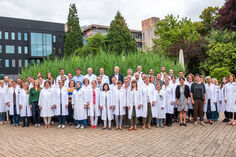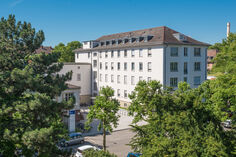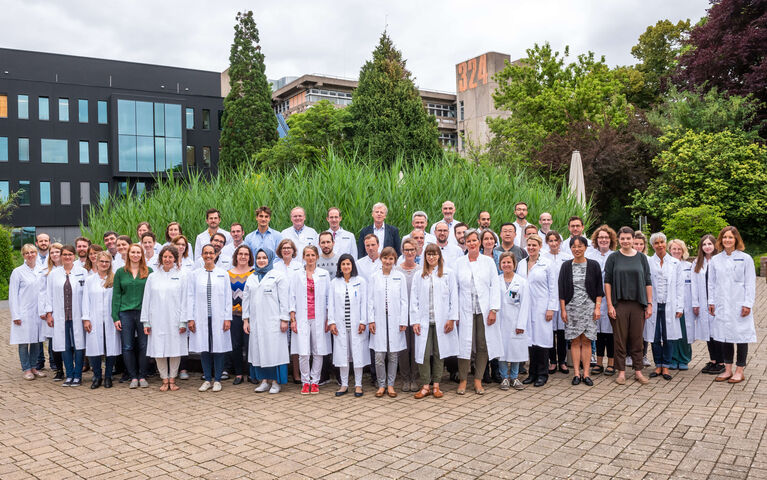HISTORY OF PSYCHOSOMATICS IN HEIDELBERG
The Department of General Internal Medicine and Psychosomatics, Heidelberg, has a long tradition and looks back on extensive experience with psychosomatic illnesses.
The famous "Heidelberg School of Psychosomatics" was shaped by three physicians: Ludolf Krehl (1861-1937) and his two students Richard Siebeck (1883-1965) and Viktor von Weizsäcker (1886-1957). The name of the Medical Hospital and two names of wards still remind us today of the work of these doctors in Heidelberg, who are considered the founders of psychosomatic medicine in Germany.
"WE DO NOT TREAT DISEASES, BUT PATIENTS"
Ludolf Krehl took over the management of the Medical Hospital in 1907 and was one of the first physicians to demand that the sick person be treated as a whole personality with body, mind and soul. His succinct formulation "We do not treat diseases, but patients" became famous.
Richard Siebeck and Victor von Weizsäcker have continued their medical work in the spirit of their teacher. Siebeck succeeded Krehl as head of the Medical Hospital in Heidelberg in 1931. Von Weizsäcker took over the nerve department in 1921. In 1946, he became head of the new department for "General Clinical Medicine", from which today's department of "General Internal Medicine and Psychosomatics" emerged.
TREND-SETTING IN RESEARCH, DIAGNOSTICS AND THERAPY
The Psychosomatic Hospital of the University of Heidelberg, the oldest clinic of its kind in Germany, was founded in 1950 by the psychoanalyst Alexander Mitscherlich, a student of Weizsäcker. Here, for the first time, it was investigated which mental and social factors can cause neurotic, psychosomatic and organic diseases. The Heidelberg physicians developed most of the standards used today in inpatient psychotherapy as well as the treatment guidelines for almost all psychosomatic clinical pictures. The clinic's wide range of psychotherapeutic training opportunities helped to create an outpatient care network of highly qualified psychotherapists in the Heidelberg area.
PROVEN: THE THREE-STEP MODEL OF PSYCHOSOMATICS
As the only psychosomatic department in Germany, the "Department of General Internal Medicine and Psychosomatics" is simultaneously integrated into a Center for Internal Medicine and a Center for Psychosocial Medicine. On an organizational level, this is realized by a broad range of internal medicine and psychosomatic services, the "three-step model of psychosomatic medicine": Treatment is provided - depending on the patient's symptoms - on the general internal medicine ward, on the internal medicine and psychosomatic ward or on the two specialized psychosomatic and psychotherapy wards. Here, an experienced team of about 60 doctors, psychologists and social workers devote themselves to the patients.







